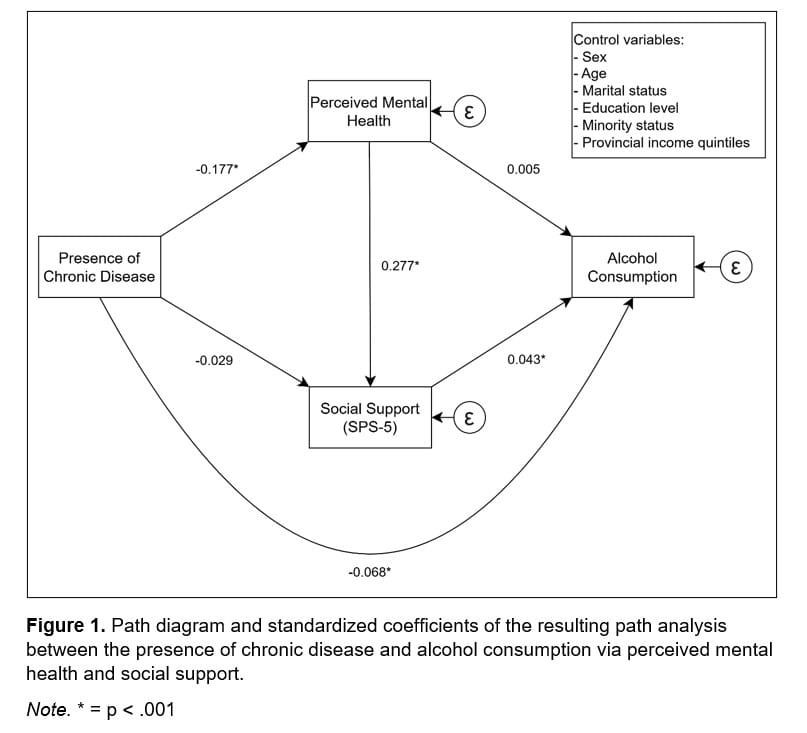Substance Use
Investigating the association between the presence of chronic disease and alcohol consumption as mediated by perceived mental health and social support: A path analysis Amy B. Crandall* Amy B. Crandall Jason Mulimba Were Roman Pabayo
Background: Having a chronic disease is a source of stress that may contribute to alcohol misuse. However, less is known about mechanisms that link chronic disease to alcohol misuse. This study aimed to determine whether perceived mental health and social support mediate the association between chronic disease presence and alcohol use.
Methods: Cross-sectional data was obtained from the 2019-2020 Canadian Community Health Survey. Individuals not using a proxy were included (n = 38,557). Chronic disease presence was defined as a binary measure based on self-reported diagnoses, perceived mental health was measured using a five-item Likert scale, and social support was measured using the five-item Social Provision Scale. Alcohol consumption was categorized as an ordinal variable (no use to daily use). Path modelling with weighted least squares estimation was used, and all coefficients were standardized with z-scores.
Results: A 1-SD increase in chronic disease presence was associated with a 0.068-SD decrease in alcohol consumption after adjusting for confounders (95% CI: -0.098, -0.039). A 1-SD increase in chronic disease presence was also associated with 0.177-SD lower perceived mental health (95% CI: -0.210, -0.144), while a 1-SD increase in perceived mental health was associated with a 0.277-SD increase in social support (95% CI: 0.259, 0.295). Indirectly, a 1-SD increase in chronic disease presence was associated with a 0.002-SD decrease in alcohol consumption via the mediated perceived mental health and social support pathway (95% CI: -0.003, -0.001).
Conclusion: Findings from this study indicate that chronic disease is associated with decreased alcohol consumption, with perceived mental health and social support mediating this relationship. It is proposed that campaigns focused on mental health and the risks of alcohol use for people with chronic diseases are essential for maintaining low alcohol consumption in this population.

